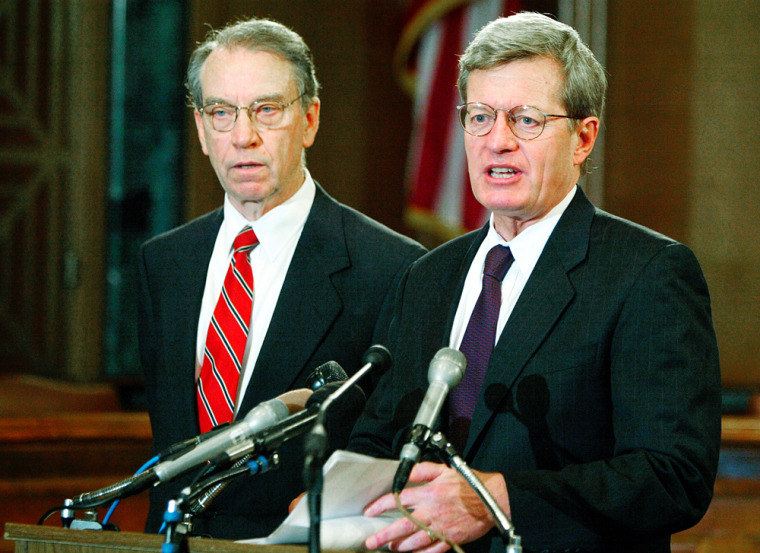In the wake of a long-running series of scandals and controversies involving charities and nonprofits, Congress's tax-writing committees are launching an effort this week to crack down on fraudulent activities and tighten laws governing tax exemptions for those groups.
The Senate Finance Committee will look at a broad range of possible revisions, including changes that would greatly increase disclosure requirements, require outside audits of many charities, stiffen the rules covering credit counseling groups, and require nonprofits to refile with the Internal Revenue Service every five years to justify their continued nonprofit status. The House oversight panel is reviewing the billing practices of nonprofit hospitals.
Congress has reacted angrily to revelations of abuses by a wide variety of charities, including scandals at well-established organizations such as United Way and the Nature Conservancy, and the disclosure that some tax-exempt groups have been acting as "accommodation parties" in abusive tax shelters.
Many of the proposals would extend to public charities most of the restrictions now applied only to private foundations and other private charities.
"It's obvious from the abuses we see that there's been no check on charities. Big money, tax free, and no oversight have created a cesspool in too many cases," Senate Finance Committee Chairman Charles E. Grassley (R-Iowa) said late last week. "It's time for Congress to send a message." Added Sen. Max Baucus (Mont.), the ranking Democrat on the panel: "The examples of abuse surrounding charitable organizations are growing at an alarming rate. . . . These actions are immoral and inexcusable -- and threaten to taint the reputation of all charitable organizations."
Baucus cited as examples car donations that result in large tax deductions to the donor but only pennies to the charity and unethical tax promoters who use charities as a smoke screen.
The Finance Committee and the House Ways and Means oversight subcommittee have scheduled hearings tomorrow on problems in the nonprofit world and proposals for dealing with them.
Finance Committee aides said one key goal for the panel is to clarify many of the laws that govern nonprofits, making it easier for the Internal Revenue Service to spot and enforce violations, and also making it easier for the organizations to understand what is proper and what is not.
Rules are hazy
Many of the rules on compensation of charity officers, self-dealing between nonprofits and their officials, and the proper roles of boards of trustees are hazy, they said. This not only invites abuse but also makes it difficult for trustees and others to rein in abusers.
Panel members will also look at the idea of making public far more of the records and filings of nonprofits.
For example, they will consider a proposal to require nonprofits to attach to their Form 990, a document that is available to the public, a chart showing the organization's relationship with its affiliated exempt and nonexempt organizations, and report more clearly on formation of taxable subsidiaries and any transactions with such organizations.
Charitable groups and professionals who work for nonprofits say they support the general idea of reform, but reacted cautiously to the committee's long list.
"There is a whole range of ideas" under consideration and the "intention is to consult with various groups. That will give us all ample opportunity to have a public discussion," said Diana Aviv, head of Independent Sector, an umbrella group of nonprofits.
"This is an occasion for us to think seriously about policies that may have been in place that are no longer acceptable, and where law and practices haven't caught up" with what is going on in the marketplace, she added.
Other proposals under consideration include:
• Placing restrictions on "donor advised funds." These are funds, in many cases run by big mutual fund companies, that allow donors to contribute and take an immediate deduction but then direct the distribution of the donation to charities over time. These funds are not defined in current law and are not subject to any special rules. The panel is considering such things as requiring donated assets other than cash and publicly traded securities to be sold promptly, and requiring minimum annual distribution amounts.
• Adding requirements for credit counselors.
• Revoking the tax-exempt status of nonprofits involved in tax shelters.
• Tightening the self-dealing rules for public charities.
• Tightening the rules that apply when nonprofits, such as hospitals and insurers, convert to for-profit enterprises.
